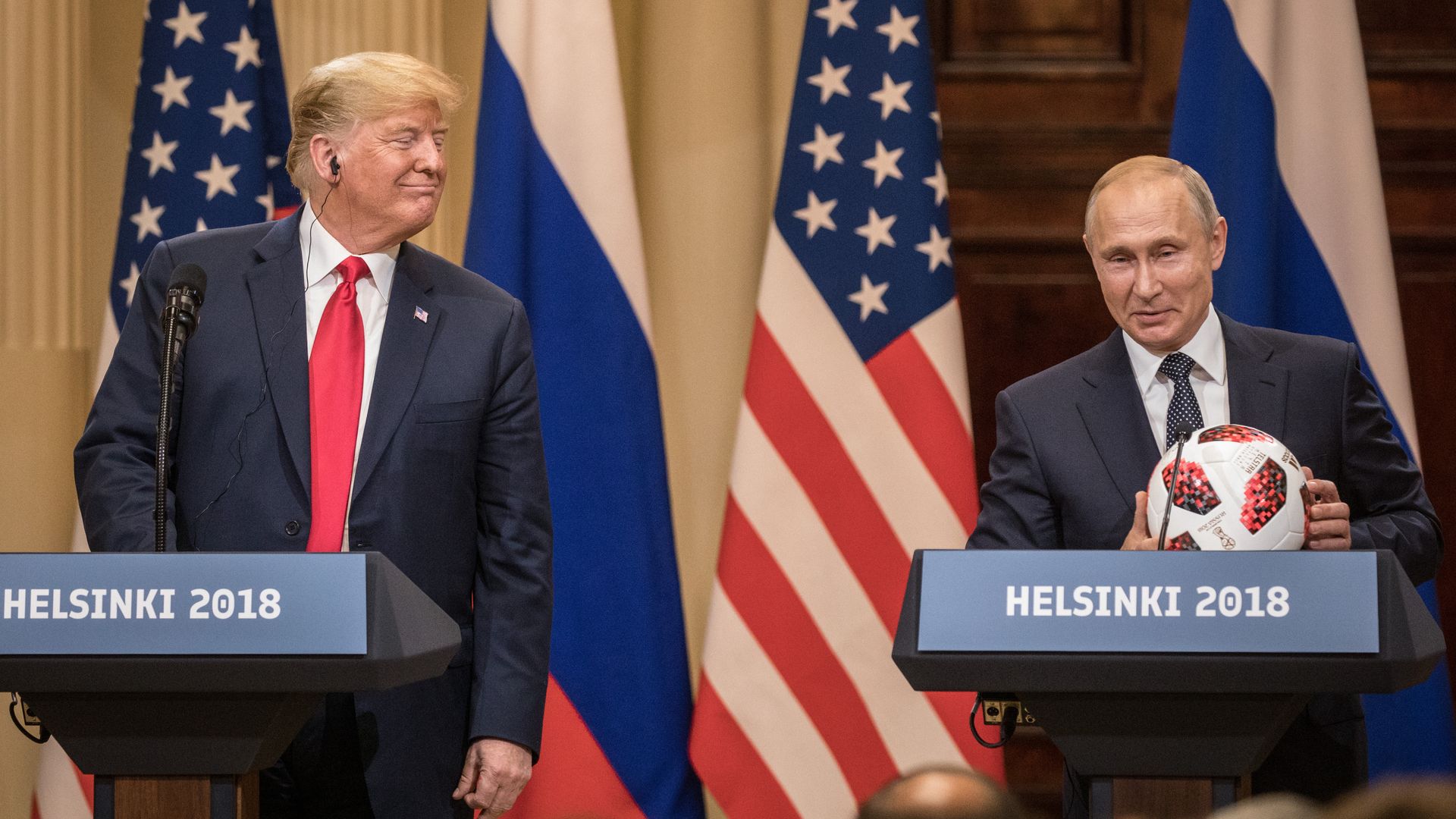Jul 16, 2018 - Politics & Policy
Expert VoicesWith Trump more isolated on Russia, Putin could see few gains from summit
Add Axios as your preferred source to
see more of our stories on Google.

Russian President Vladimir Putin hands President Donald Trump a World Cup soccer ball at their summit on July 16, 2018, in Helsinki. Photo: Chris McGrath via Getty Images
